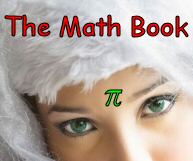
Sub-Planck refers to hypothetical, speculative, and conjectural physics beyond or smaller than the
Planck scale. The
Planck length and
Planck time are the smallest units in accepted models of physics. It is possible that the Planck scale represents the ultimate smallest scale conception of space and time; indeed this is what current
Quantum Gravity research is based Common knowledge in physics is that the sub-Planck scale may not an aspect of physical reality at all; however, even a successful theory of Quantum Gravity does not mean that there is a further sub-Planck development someday to be discovered. Indeed classical gravity breaks down at precisely the
Planck scale energy levels. It is possible that no conceptual or mathematical description of sub-Planck physics can be made without "breaking the unity of a single quantum" in physics. However, even if not done, common knowledge of physicists does not mean that various averages over various broken quantum pieces may not make sense in their total sum and even if the individual pieces are not physically identifiable or relatable to particles or fields in the Universe.
This article is licensed under the
GNU Free Documentation License. It uses material from the
Wikipedia article "Sub-Planck". This entry is a fragment of a larger work. Link may die if entry is finally removed or merged.

 The Wikipedia Knowledge Dump (WikiDumper.org)
The Wikipedia Knowledge Dump (WikiDumper.org)

